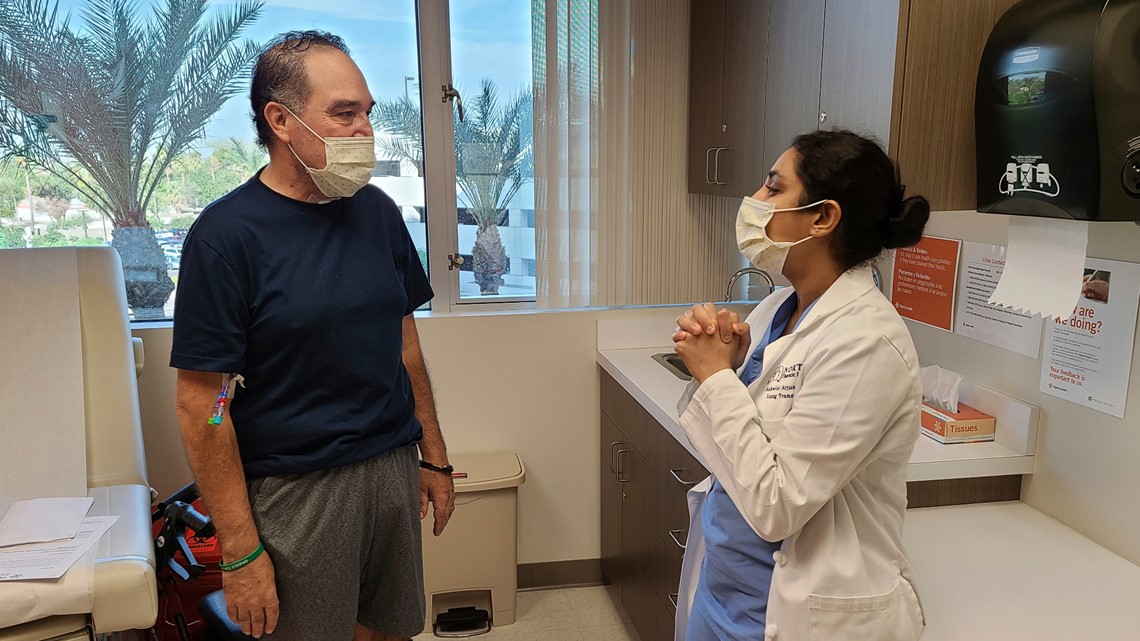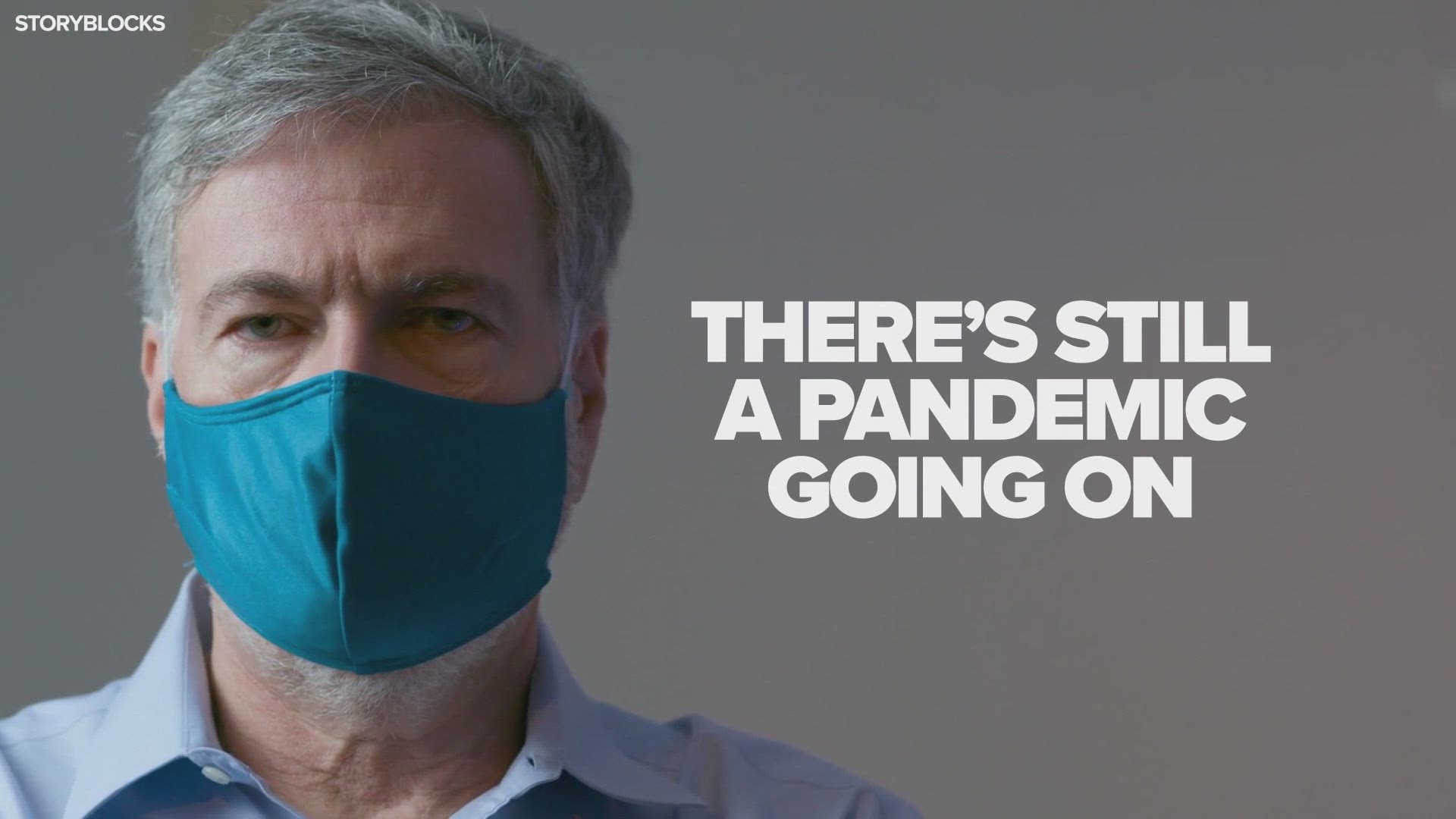PHOENIX — Arthur Sanchez's memories of his monthslong hospital stays are hazy but he hasn't forgotten how it felt when COVID-19 took away his ability to breathe.
“I would probably compare it to being underwater too long and not being able to come up for air,” Sanchez said while standing behind a lectern. “It’s a scary situation to be in.”
Seven months after he was first hospitalized with the coronavirus in his hometown of Las Cruces, New Mexico, the 52-year-old utility worker has a brand new set of lungs. Doctors at St. Joseph's Hospital in Phoenix — where the August transplant took place and where he has since been in rehabilitation — are expected to release Sanchez on Saturday. He is the first of two double lung transplants the hospital has performed on coronavirus patients since the pandemic began.
Sanchez on Thursday called himself a “walking miracle” while speaking virtually to reporters. He wore a T-shirt that said “Sanchez Strong."
“I was always going to fight for my family, for my girls,” he said, referring to his two adult daughters. “I'm not afraid to die because I have a strong belief in God but I hate to leave them behind. That’s my greatest fear.”
When coronavirus cases were first reported in the U.S., Sanchez thought it would be like the flu and disappear after a few months. Even if he did get it, he said he felt healthy enough to fight it. Then, his mother, sister and brother-in-law all contracted it. Later, his brother-in-law died. In April, Sanchez took over caring for their mother after he tested negative, but early Easter morning, he woke up with a fever and shortness of breath.
Sanchez rushed to the hospital. He was hospitalized for three days, was discharged, but the next day, ended up back in the hospital after a nurse called to check on him. Sanchez said he didn't feel right. Doctors decided he needed a ventilator.
That was the start of almost five months in New Mexico hospitals, nearly four of them on a ventilator.
A transplant was the last resort, said Dr. Rajat Walia, a medical director who heads the transplant program at St. Joseph’s.
“There’s a point at which we know these lungs are not going to recover — such was Arthur’s case,” Walia said.


Since no medical facility in New Mexico could perform the transplant, Sanchez would board a medical flight to Arizona for the Aug. 16 procedure.
After that, he spent two weeks recovering before he was sent to the rehabilitation unit.
His life is irrevocably changed. Besides possible long-term effects from the virus, he has to take immune-suppressing medicines to prevent rejection of his new lungs.
“My immune system is so suppressed now to avoid ... rejection. I am more susceptible to any type of virus, sickness, illness, whatever,” Sanchez said. “So, I have to be careful with what I do, with what I eat.”
Lung transplants accounted for just 7% of the nearly 40,000 U.S. organ transplants in 2019. They are typically hard to find and patients often wait weeks on the transplant list. The United Network for Organ Sharing shows there have been more than 2,200 lung transplants so far this year. The data didn't indicate how many of those recipients were also battling COVID-19.
Nationwide, there have been reports of a handful of coronavirus-related lung transplants.
Sanchez hopes people skeptical of coronavirus restrictions will learn from his experience.
“I’ve lost 50-plus pounds from this illness. I don’t recommend it as a diet plan for anybody," Sanchez said. “My attitude has changed. You need to take it seriously.”
Walia, the doctor, said he's received many referrals for similar cases. He thinks there is growing potential for more COVID-19 patients needing lung transplants.
Sanchez acknowledged none of his progress would be possible without donors. When he returns to New Mexico, he will be thinking of his donor's family when he savors red and green chilis with his loved ones, he said.
“I need to do the best that I can to take care of this second chance at life.”

